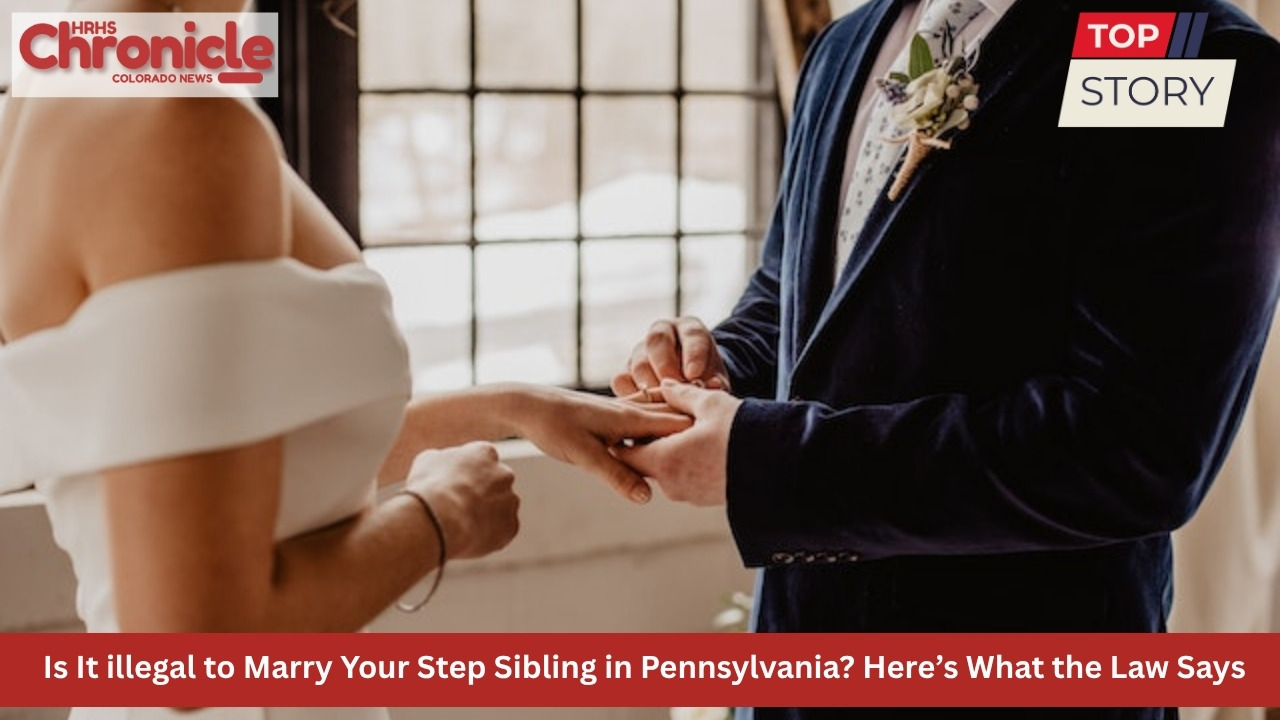Family structures in Pennsylvania, particularly in metropolitan areas like Philadelphia, Pittsburgh, Allentown, and Erie, have evolved dramatically over the past few decades. As blended families become more common, questions have arisen about the legal implications of relationships formed within these new family structures. One such question: Is it illegal to marry your step sibling in Pennsylvania?
Defining Step Siblings and Legal Relationships
Step siblings are the children of two individuals who marry, where each partner brings children from previous relationships into the new household. Step siblings share no blood or biological link; their connection is created solely through the marriage of their respective parents.
Many residents across Pennsylvanian cities such as Scranton, Harrisburg, and Reading live in non-traditional family units. According to recent family studies, approximately 16% of children in the United States are part of “blended families.” This arrangement highlights the significance of understanding the law as it applies to step sibling relationships.
Statutory Overview: What Does Pennsylvania Law Say?
Marriage laws in Pennsylvania, like in most states, primarily focus on blood relationships when setting prohibitions. The main objective is to prevent unions that could present risks of genetic diseases in offspring or violate social norms.
A review of Pennsylvania’s statutes—specifically those outlined in Title 23 of the Pennsylvania Consolidated Statutes—shows that it is illegal to marry close blood relatives, such as biological siblings, parents, aunts, uncles, nieces, or nephews. However, the law makes no reference to step sibling relationships. Legal restrictions against incest do not extend to relationships formed through marriage rather than genetics. Thus, there is no law prohibiting step siblings from marrying in Pennsylvania.
The Rationale Behind the Law
The rationale for focusing on blood relatives stems from concerns about the increased likelihood of genetic disorders in children born to closely related parents. Because step siblings do not share DNA, the state does not view these relationships through the same lens.
Social Acceptance vs. Legal Permission
While the law may allow marriage between step siblings, public opinion often lags behind legal changes. In cities like Lancaster, York, and Altoona, societal views on such marriages range from indifferent to disapproving, particularly in smaller, more traditional communities.
Yet the increase in the number of blended families, especially in diverse areas like Philadelphia, reflects greater acceptance and understanding of complex family relationships. This growing acceptance is due in part to the fact that step sibling marriages do not bear the same social or genetic implications as marriages between blood relatives.
Real-Life Considerations in Pennsylvania
If two step siblings decide to marry in Pennsylvania, they can follow the same procedures as any other couple seeking to wed. They must apply for a marriage license at their local county courthouse, provide standard identification, and confirm that no prohibitions for close blood relations exist. Pennsylvania does not require a waiting period after parental marriages or divorces for step siblings wishing to wed.
However, couples should be aware of the personal and familial complexities that may arise. These include navigating relationships with parents, siblings, and other extended family members, as well as addressing any challenges involving former step siblings or family traditions.
Case Studies and Urban Trends
There are notable cases in urban Pennsylvania where step siblings have decided to tie the knot. While such unions are still relatively rare, data suggests that as families become more blended, these marriages may become more common. In Pittsburgh, for example, family law attorneys have seen a gradual increase in queries regarding the legality and logistics of such marriages.
Cities like Wilmington, Delaware, and Camden, New Jersey—both part of the greater Philadelphia area—have reported similar trends concerning blended families. This suggests that the topic is not unique to Pennsylvania, but is part of a broader shift in American family law and social dynamics.
Frequently Asked Questions
Do step siblings count as close relations for marriage license applications in Pennsylvania?
No. When applying for a marriage license in any Pennsylvania city, step siblings do not fall under the category of close relations for whom marriage is prohibited.
Will social services intervene if step siblings in Pennsylvania marry?
No. Marriages between consenting adults who are not blood relatives, including step siblings, are not subject to intervention from social services.
Are there any famous cases of step siblings getting married in Pennsylvania?
While there are anecdotal instances, most cases are handled privately and are no different legally from any other marriage between consenting adults.
Can step sibling couples adopt children or have them legally recognized as family?
Yes. After marriage, step sibling couples are treated the same as any married couple in Pennsylvania for purposes such as adoption or being legally recognized as family.
What Should Couples Consider Before Marrying a Step Sibling?
While it is legal, couples should be prepared for:
-
Potential familial tension or disapproval from relatives, especially in more traditional towns.
-
Emotional complexities if the step sibling relationship developed during childhood.
-
The need to explain the relationship to friends, extended family, or in situations involving children from previous relationships.
Practical Steps for Marriage
-
Visit the county marriage office in cities such as Philadelphia, Pittsburgh, Allentown, or Erie for an application.
-
Present valid identification and complete the necessary forms.
-
Confirm that you are not related by blood within prohibited degrees.
-
Complete any applicable waiting period (if required).
-
Proceed with a marriage ceremony as permitted by Pennsylvania law.
The Future of Step Sibling Marriages in Pennsylvania
As Pennsylvania’s family structures continue to diversify—especially in bustling urban areas and swiftly growing towns—the legal system is expected to adapt further. Experts in Philadelphia predict an ongoing increase in marriages involving individuals from blended families as stigma declines.
Closing Thoughts
To summarize, it is not illegal for step siblings to marry in Pennsylvania. The law, focused on blood relations, does not view step sibling marriages as incestuous or prohibited. Couples should feel confident in their legal right to marry, though it is wise to be cognizant of possible social and personal considerations. With proper legal advice and an appreciation of family dynamics, step sibling marriage in Pennsylvania is not just a legal possibility; it’s a reflection of the changing face of modern families across cities like Philadelphia, Pittsburgh, and beyond.

Mrs. Odice has been a teacher here for 9 years. She likes yoga and spends most of her time with her 3 kids. She also grew up going to Douglas County schools and is Canadian.















Leave a Reply